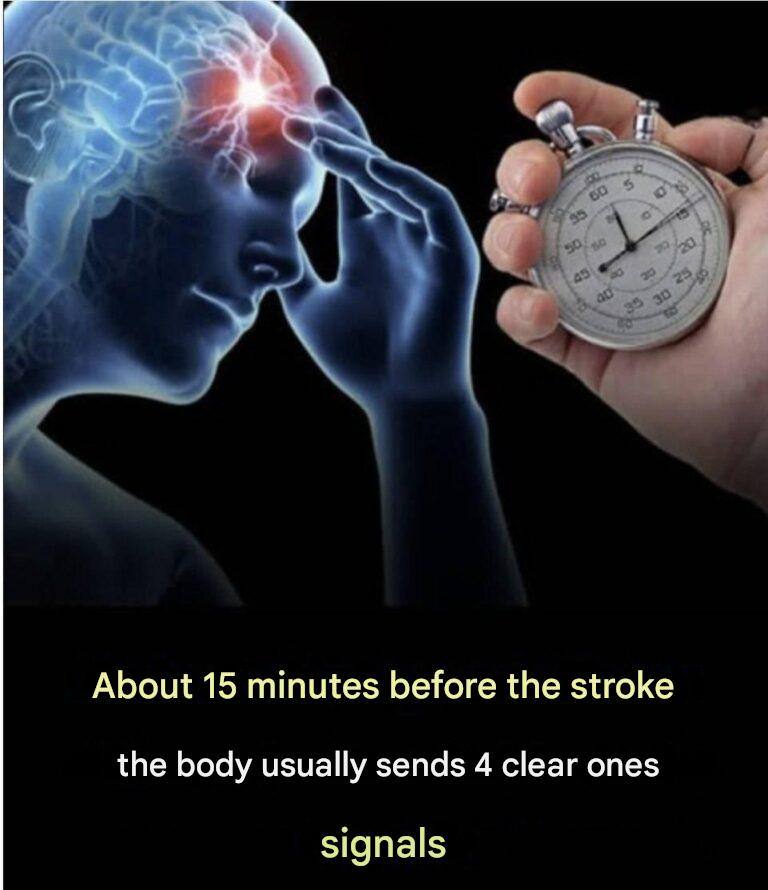Introduction
The image above warns that in the minutes before a stroke, the body may send one or more clear warning signals. While strokes often strike suddenly, there can be early warning signs—sometimes minutes, hours or even days ahead. Recognizing them could give you or a loved one the chance to act quickly. According to major sources, such as the Centers for Disease Control and Prevention (CDC) and American Stroke Association, knowing the signs of stroke and acting quickly can make a critical difference. CDC+2Northwestern Medicine+2
Why Early Signals Matter
A stroke occurs when the blood supply to part of the brain is interrupted (ischemic stroke) or when a blood vessel in the brain ruptures (hemorrhagic stroke). When brain tissue is deprived of oxygen, brain cells begin to die—hence the phrase “time is brain.” Cleveland Clinic+1 If warning signs are recognized early and emergency care is accessed immediately, the chances of reducing brain damage improve significantly. www.stroke.org+1
Four Key Early Signals to Watch For
Though not every stroke is preceded by warning signs, and every person may experience different symptoms, the following four signals deserve immediate attention:
1. Sudden Weakness or Numbness on One Side
One of the most common early signals is a sudden loss of strength or sensation in the face, arm or leg — typically on one side of the body. This may feel like one side of the face droops, one arm can’t raise fully, or one leg drags when walking. The CDC lists “sudden numbness or weakness of face, arm or leg, especially on one side of the body” as a top warning sign. CDC+1
If you notice a friend’s smile becomes lopsided, an arm drifts downward when raised, or a leg feels weak — act fast.
2. Sudden Difficulty Speaking or Understanding
Another signal is a change in speech: slurred words, unable to repeat a simple phrase or confusion about what others are saying. This may signal that the stroke is affecting the language areas of the brain. The FAST acronym (Face drooping, Arm weakness, Speech difficulty, Time) is used to remember this pattern. www.stroke.org+1
If someone’s speech suddenly changes, even for a moment, don’t wait — call emergency services right away.

